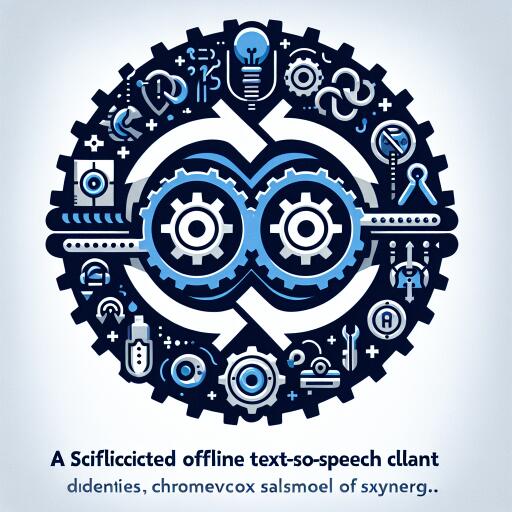Exploring the ChromeVox Next Offline TTS Client: A Breakthrough in Accessibility Tech
The advent of sophisticated artificial intelligence and machine learning technologies has significantly transformed how we interact with our devices. One such revolutionary stride has been made in the field of speech recognition and text-to-speech (TTS) technologies. My journey into this realm commenced primarily driven by the desire to imbue my home automation system with more interactive capabilities. Understanding the essence of communication within this setup led me to explore the possibility of integrating a text-to-speech module to complement the speech recognition component already in place.
Android’s offline TTS feature has always stood out for its clear and natural voice output, a functionality that I found to be compatible with desktop environments as well, particularly Chrome OS. This compatibility sparked an idea: why not merge the convenience of offline TTS from Android with the extensive capabilities of Chrome on desktop? This thought led to the inception of the ChromeVox Next offline TTS client project.
Before we dive deeper, it’s vital to understand the foundation of this project. The initial push came from the exploration of On-device speech recognition as seen in Google’s GBoard, which leverages TensorFlow Lite or LWTNN (Lightweight Neural Network). While waiting for SODA (Speech On-Device API) to be released for Chrome, which would significantly enhance the speech recognition project, I found a window to venture into the realm of TTS development.
The process began with setting up Chrome OS in a virtual machine, a task facilitated by neverware.com. During this exploration, I stumbled upon a crucial piece of information within the Chrome source repository. It mentioned that the TTS component of Chrome OS could be extracted and used independently. This discovery was the key that unlocked the potential for creating a standalone TTS client.
The real technical endeavor started with deploying ltrace on Chrome OS to monitor the calls made to the Google TTS library. The insights gained from this exercise paved the way for crafting a compact C program, approximately 50 lines, designed to channel any voice from Google’s diverse language offerings through an audio output system like ALSA (Advanced Linux Sound Architecture).
This proof-of-concept demonstrated the feasibility of integrating high-quality TTS functionalities into any C/C++ project with minimal effort. While this prototype currently exists in its nascent form, the possibilities it opens are vast. For instance, crafting a Python wrapper around this solution could extend its utility to a wider range of applications and user interfaces. The project’s code is available on GitHub, and I encourage tech enthusiasts and developers to explore this solution further. Whether you’re motivated by curiosity or a specific application in mind, your feedback and contributions could shape the future of offline TTS technologies.
In conclusion, the journey to develop the ChromeVox Next offline TTS client has been both challenging and enlightening. It highlights the incredible potential of leveraging existing technologies in novel ways to enhance our interaction with the digital world. As this project continues to evolve, it stands as a testament to the innovative spirit that drives the open-source community forward. If you find this project intriguing and decide to experiment with the code, I’d love to hear about your experiences and any innovations you bring to the table.










